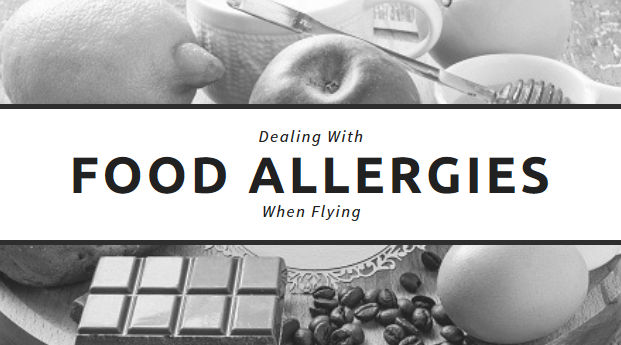Dealing With Food Allergies When Flying
Do you have a food allergy? According to the National Institutes of Health, food allergy affects approximately five percent of people. If you are among them, then you know how to avoid allergens and manage your symptoms. If you have a severe allergy to nuts or other foods, though, you might be concerned about the higher risks of flying. Being in an airplane means that there will be many other people in close proximity to you, and you will not be near medical facilities. If you have a food allergy, here are some tips on keeping yourself safe while flying:
-
Before flying, talk to your doctor. It’s a good idea to see your physician before traveling, particularly before traveling internationally, so that you can update any prescriptions and get any necessary vaccinations anyway. This is especially important if you have a food allergy. You might require an extra package of injectable epinephrine (often called an Epi-Pen) while you’re away, and it’s important to be sure that it, along with other medications, is not expired. While you are at the doctor’s office, get a copy of your epinephrine prescription and a travel plan from the physician to show at airport security if necessary.
-
Call the airline. When you book the tickets, talk to someone at the airline agency. Let them know that you have a severe food allergy, and ask what accommodations can be made, if any. You might, for example, be able to sit in a peanut-free section of the airplane, or you may be allowed to pre-board so that you can wipe down your seat. Ask whether peanuts are routinely given out as a snack; some airlines are allergy-friendly and will give out bags of pretzels or some other nut-free snack to everyone.
-
When it’s time to travel, keep your medication in its original packaging and let the security person know ahead of time that you have medication with you. If necessary, show your travel plan, but usually liquid medications are allowed through with no hassle at all as long as you alert the security officer.
-
Consider wearing a medical alert bracelet. This will allow the airline personnel to know what to do if the worst should happen and you have a reaction while on the plane.
-
Disinfect. Once you board the plane, wipe down the seat, armrests and tray with baby wipes. This will remove any residue of the allergenic food from the area in case someone before you was eating a snack that would prompt an allergic reaction.
-
Don’t eat anything prepared by the airline. Contamination could occur and this is one of the worst places to have it happen. Pack your own food instead. Check with the airline ahead of time to find out whether there are any foods that you are not allowed to bring onboard.
-
Don’t be afraid to speak up. If someone near you is opening a bag of peanuts, for example, politely let them know that you are allergic, and ask if they wouldn’t mind eating something else instead. Chances are good that they will comply. Of course, you can’t guarantee that the person will take your allergy into consideration, and you also can’t be sure that someone who you can’t see won’t be indulging in a food that you shouldn’t be exposed to.
- Keep your medication within easy reach. If it’s in the overhead compartment, it might be difficult to get to it.
Remember that people with food allergies fly every day, and most of the time it’s without incident. As long as you have a plan in place and your medication on hand, your chances of having a severe reaction on the airplane are very slim. Stay calm and remember to be aware of what’s going on around you, and you should be just fine.
Note: We share tips for health, travel & preparedness, but this is not official medical or health advice. Please contact your medical professional if you have questions or symptoms.








